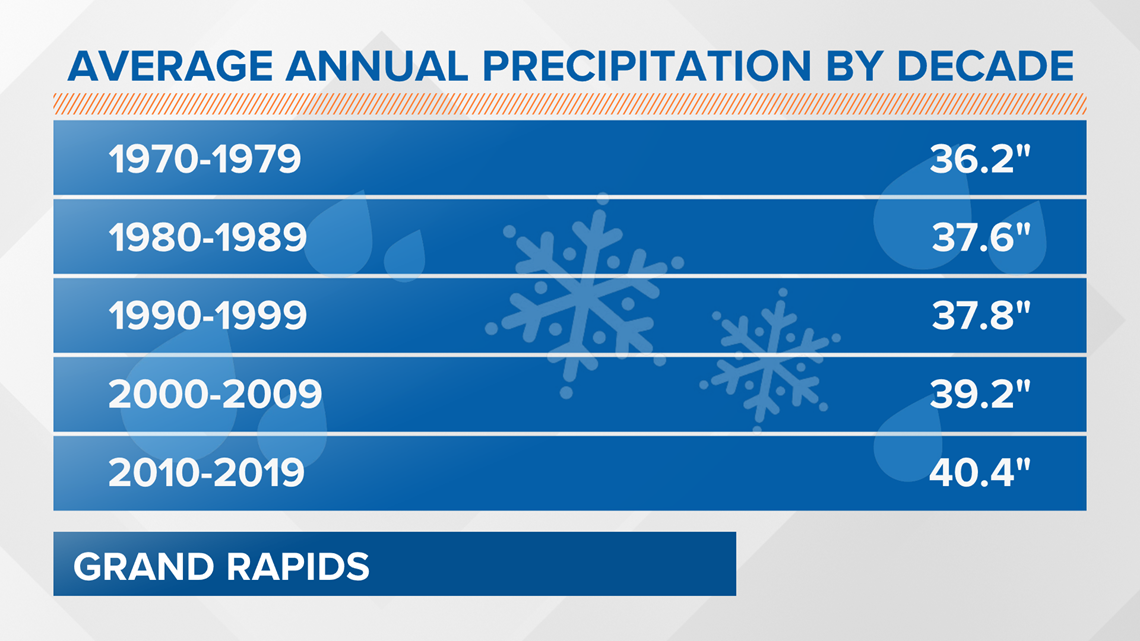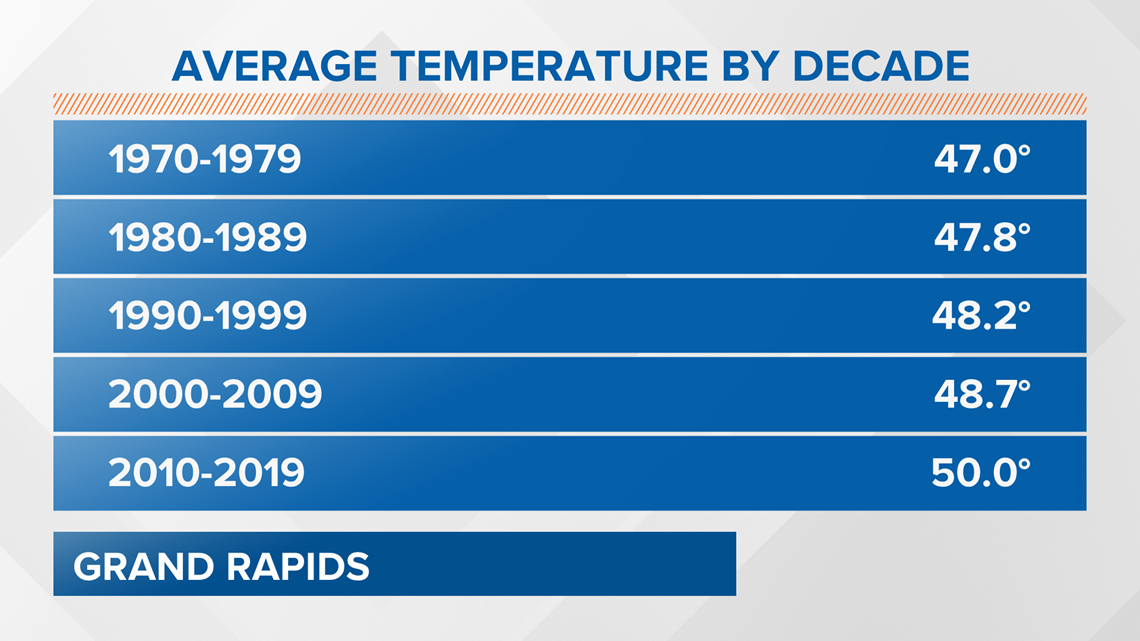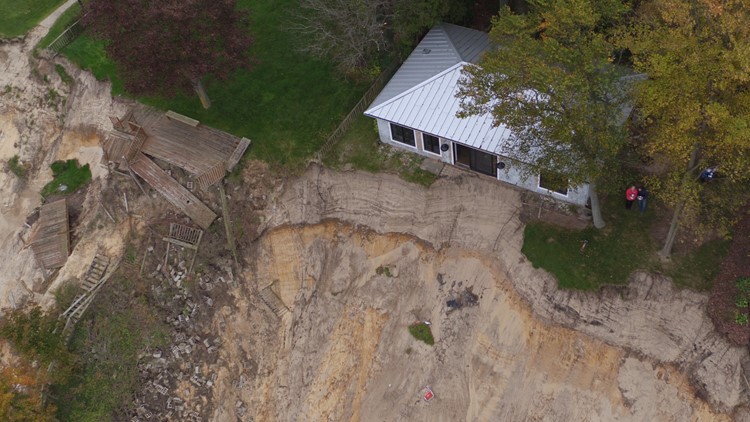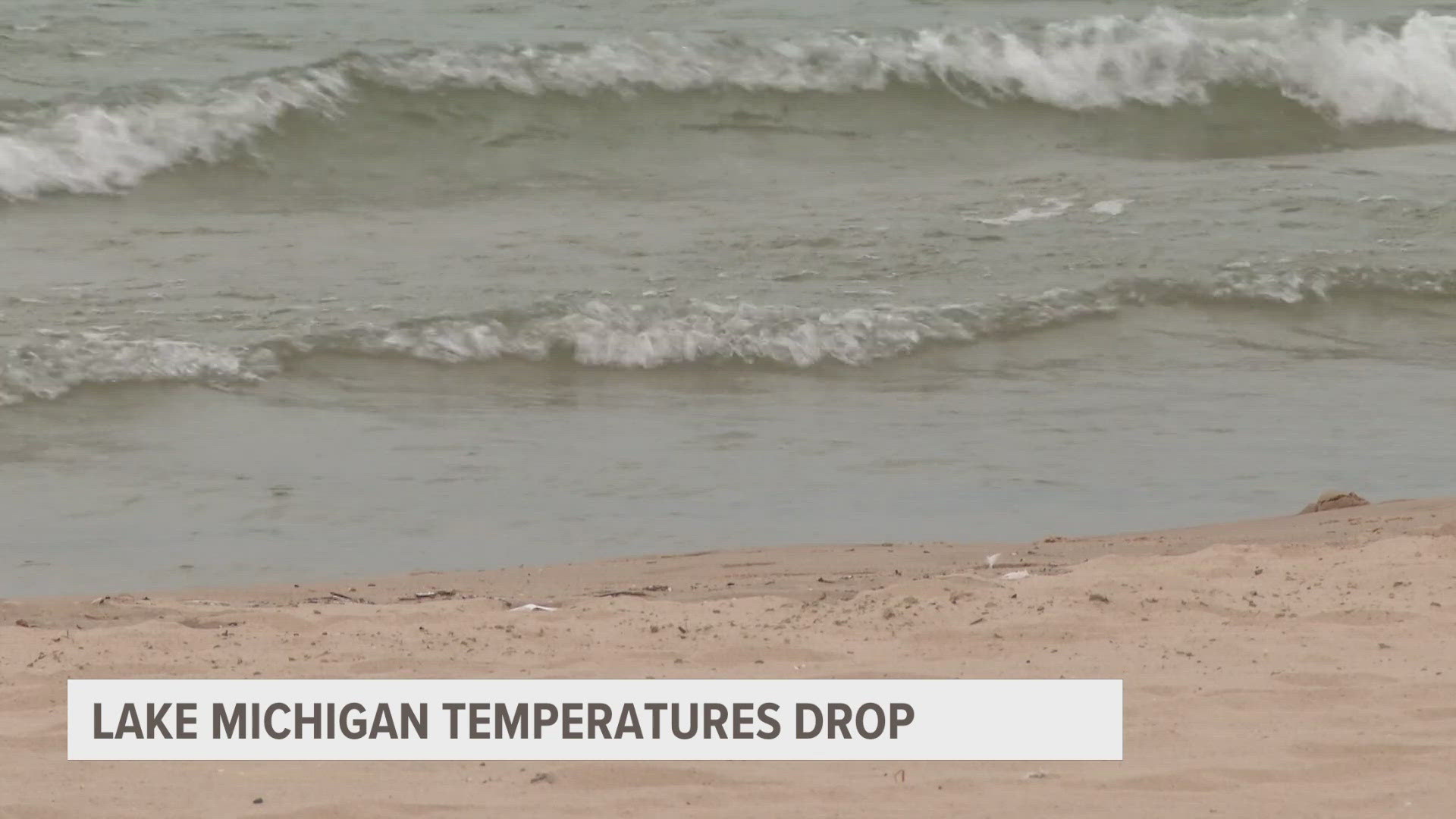MICHIGAN, USA — Great Lakes water levels remain unusually high and combined with large surf from fall storms -- coastal dunes and beaches have eroded away for several months now.
The scientists tasked with measuring Great Lakes levels are the US Army Corps of Engineers. According to them, lake levels are unlikely to change much anytime soon.
Lake levels are at their highest since at least the mid 1980s and nearly 3 feet above normal.


Several factors contribute to Great Lakes lake levels. One major factor is precipitation: the more rain and snow that falls, the higher the lake levels tend to be. As our climate has warmed, precipitation amounts across the Great Lakes have tended to increase. Over the last 50 years, precipitation amounts in West Michigan have been trending up.


The connection between climate change and lake levels is a complex subject. As our atmosphere warms it adds more moisture to the atmosphere, creating more clouds and rain and decreasing evaporation.
The Army Corps of Engineers says it would take a fairly dry year to bring lake levels down. And with the way things are trending, that looks increasingly unlikely.
Bottom line: Great Lakes lake levels should remain unusually high for the foreseeable future.
More lakeshore/weather stories on 13 ON YOUR SIDE:
RELATED VIDEO:
►Make it easy to keep up to date with more stories like this. Download the 13 ON YOUR SIDE app now.
Have a news tip? Email news@13onyourside.com, visit our Facebook page or Twitter. Subscribe to our YouTube channel.



